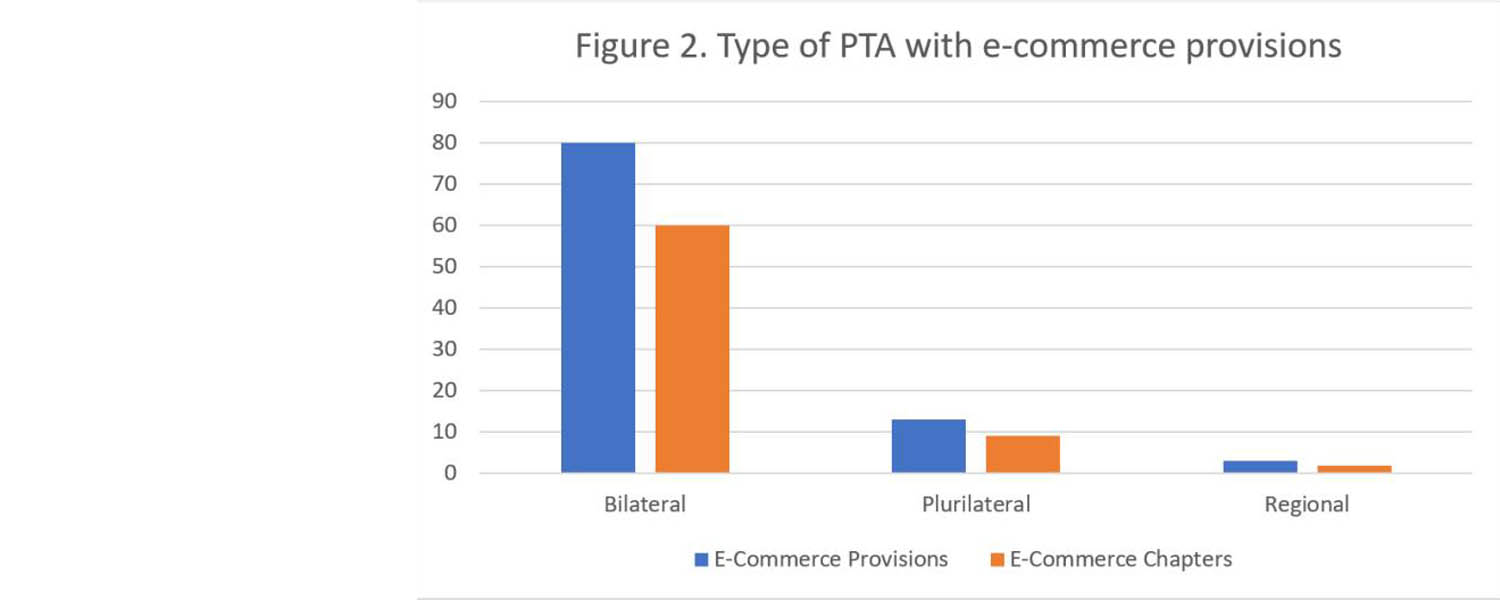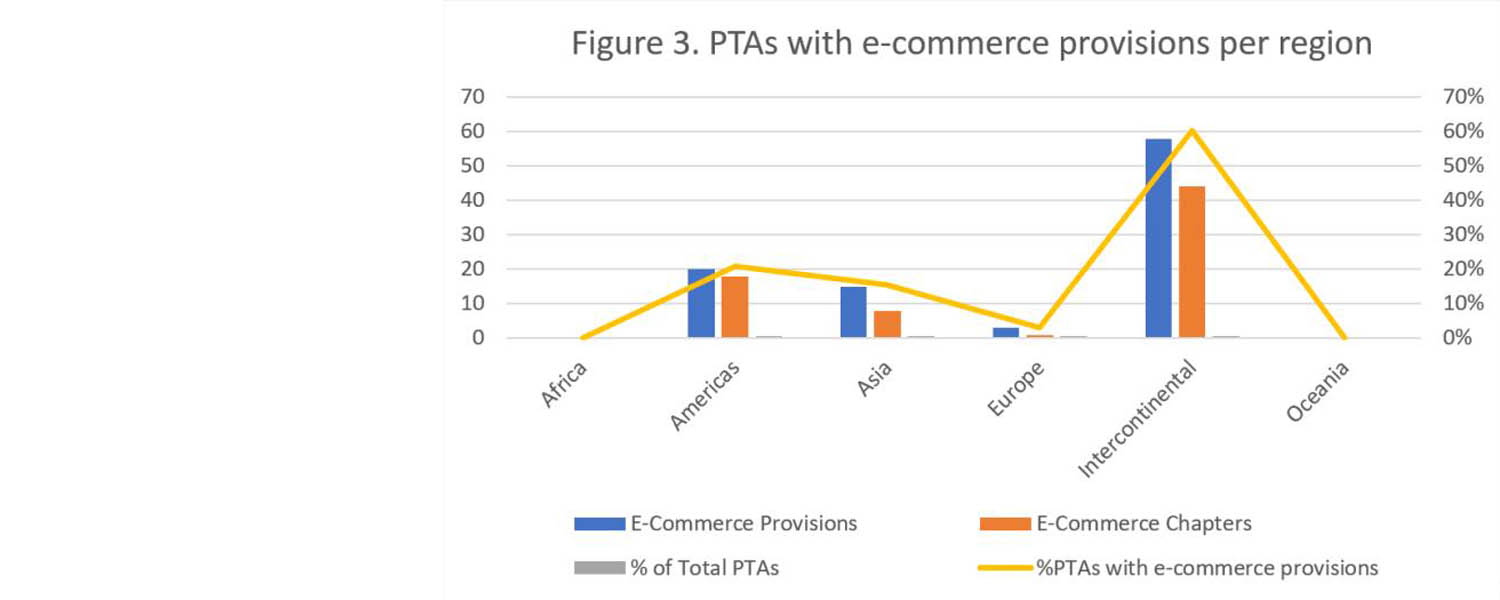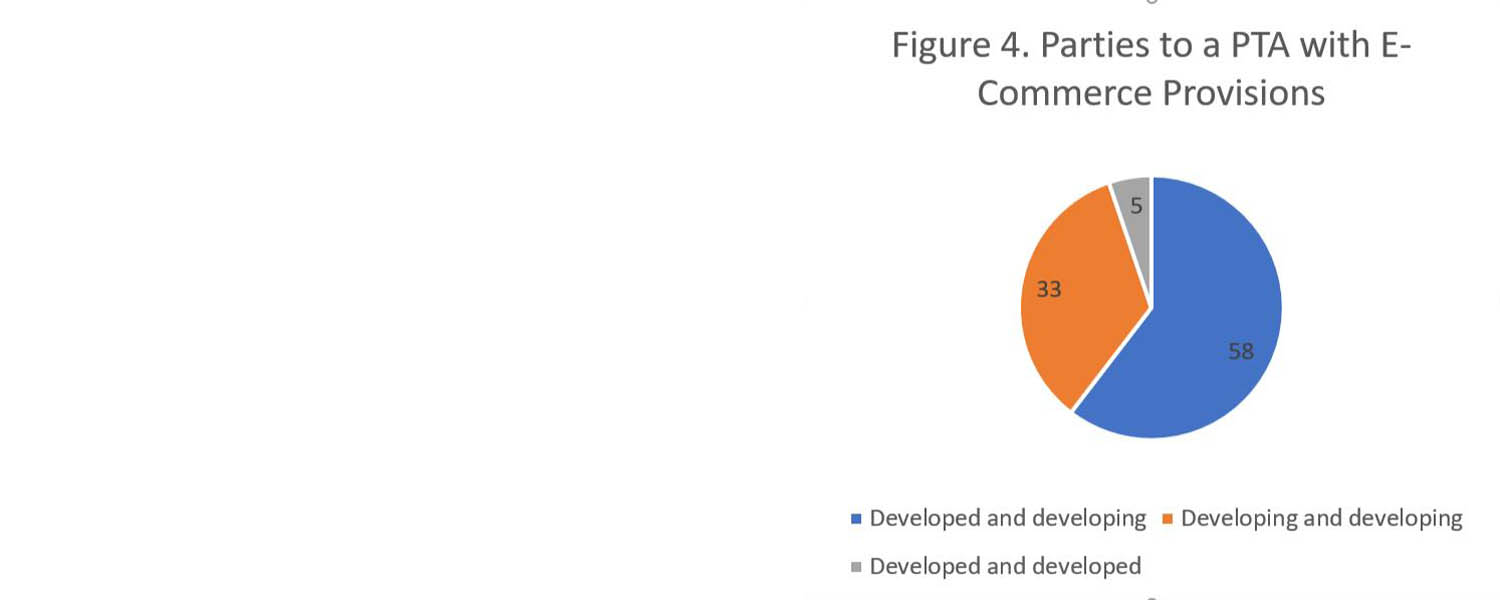
How Trade Agreements Address Privacy and Consumer Concerns?
Authors
Prof. Mira Burri and Dr. Rodrigo Polanco
University of Lucerne
In this article the NRP75 project „Regulating big data in trade agreements“ reports first results.
Technology shapes how people access information, interact with devices and share personal information. New digital technology, such as the Internet of Things, robotics and artificial intelligence (AI), has the potential to revolutionise societies in positive ways. However, as with any scientific or technological advancement, there is a real risk that the use of new tools will have some negative impact on society – for instance, on privacy protection or other fundamental human rights.
The incredible amount of data collected is immensely valuable to companies vying for consumers’ business. With this increase in intelligence of this smart technology, personal data needs to be protected in every way possible.
The regulation of electronic commerce and data has emerged as an important topic in contemporary law and policy. In 1998, the World Trade Organization (WTO) established a work programme on e-commerce, in order to examine all trade-related issues globally relating to this topic, including the development of the infrastructure for e-commerce, trade in services, trade in goods, intellectual property and economic development. Although since May 1998 the Ministers of the WTO members agreed on a temporary duty-free moratorium on all electronic transactions – a practice that has been renewed at each WTO Ministerial Conference, the WTO has made no substantive progress on e-commerce. This situation may change, if the joint declaration made by 44 WTO members in December 2017 to initiate exploratory work together toward future WTO negotiations on trade-related aspects of electronic commerce, is taken further.
But the absence of multilateral rules on big data in trade agreements does not mean that international rules are not created elsewhere. In fact, in recent years, bilateral and regional preferential trade agreements (PTAs) have increasingly included chapters or annexes on e-commerce or digital trade, or provisions that directly or indirectly regulate e-commerce and data flows.
Trade Agreement Provisions on E-commerce and Data Flows TAPED
In order to assess the breadth and diffusion of such rules and principles, in the framework of the NRP75 Project “The Governance of Big Data in Trade Agreements”, we have collected all publicly available PTAs concluded since 2002, which marked the start of the US Digital Agenda and the related endorsement of digital trade rules. A total 291 PTAs have been collected and coded under our “Trade Agreement Provisions on E-commerce and Data Flows” (TAPED), with the preliminary outputs of such dataset being presented at the WTO Public Forum 2018. The TAPED dataset comprises norms in e-commerce, intellectual property as well as other trade norms that may affect the regulatory environment for data and data flows. The goal is to make this dataset available to the public as well as easily accessible and reusable for scientists and experts.
Using the preliminary results of our dataset, we can conclude that the inclusion of provisions in PTAs referring explicitly to e-commerce and data flows is not a recent phenomenon, although it has evolved importantly in the past fifteen years.
The first e-commerce provision is found in Article 7 of the Free Trade Agreement (FTA) between Jordan and the United States, concluded on 24 October 2000 (in force since 17 December 2001). The principles included in a Joint Statement on Electronic Commerce previously concluded on 7 June 2000, are reaffirmed by virtue of Art. 7.3 of the Jordan-US FTA, and therefore should be considered comprised in that agreement. Almost at the same time, the New Zealand and Singapore on a Closer Economic Partnership Agreement (CEPA), concluded on 14 November 2000 (in force since 1 January 2001), included an article on paperless trading. Two years later, the Singapore-Australia Free Trade Agreement (SAFTA), concluded on 17 February 2003 (in force since 28 July 2003) was the first PTA to have a dedicated chapter on e-commerce.
Over the years, the number of PTAs with specific e-commerce provisions and chapters has increased continuously, in line with the growing discussions on digital economy in the policy agenda of several countries, as well as of many multilateral and regional organizations. At the moment of this writing, e-commerce provisions can be found in 96 PTAs, mostly in dedicated chapters (71 in our dataset). 85 of these agreements are currently in force. If we consider that 305 PTAs in force have been notified to the WTO by September 2018, our dataset represents 31% of all the PTAs notified to the WTO (and 28% if we only consider the agreements in force as of September 2018).
The first PTA including provisions on data flows is the United States of America and the Republic of Korea FTA, concluded on 30 June 2007 (in force since 15 March 2012). However, already the New Zealand and Singapore CEPA included a provision in Annex 2.1 considering the transfer of financial information, and financial data processing and related software by suppliers of financial services, as part of the financial services included in the agreement.

Although the number of RTAs incorporating specific e-commerce provisions remains limited, the last eight years have witnessed a significant increase in the number of agreements with such provisions.
E-commerce provisions are, on average, included in more than 57% of all the RTAs that were concluded between 2010 and 2018, with peaks over that average in 2010, 2013, 2014, 2016 and 2018. This rise in the total number of PTAs with e-commerce provisions is driven mainly by bilateral PTAs: 26% of total PTAs since 2000 and 83% of those with investment provisions.

These group of agreements are mostly of an Intercontinental nature, the Americas and Asia being the most relevant regional areas.

The rise of PTAs having e-commerce provisions involve both developed and developing countries. Following the country classification of the UN World Economic Situation and Prospects report, as of September 2018, 60% of the PTAs with e-commerce provisions were negotiated between developed and developing countries, and 34% were negotiated between developing countries. Only five PTAs negotiated between developed countries include e-commerce provisions.

Privacy issues in trade agreements with e-commerce or data flows rules, usually are treated under the title of “data protection”. 77 of PTAs in the TAPED dataset (79% of all the agreements) include a mixed bag of binding and non-binding provisions on data protection. We found 26 binding provisions (parties “shall”…), 26 non-binding (“shall endeavor”, “best efforts”, “recognizing the importance”…) and 25 include both binding and non-binding.
Similarly, consumer issues in trade agreements with e-commerce or data flows rules, are treated as “consumer protection” or “consumer confidence”. 70 PTAs in the TAPED dataset (71% of PTAs of all the agreements) include provisions on consumers’ rights, mostly non-binding provisions or left to domestic laws. Only 7 binding provisions (parties “shall”…), 54 are non-binding (“shall endeavor”, “best efforts”, “recognizing the importance”…), and 9 include both binding and non-binding provisions.
Our research shows that e-commerce and digital trade provisions are increasingly included in PTAs. Although not all of them are binding, few general provisions on data flows have become more common in recent years, as well as in specific sectors like financial services and telecommunications, which are generally binding. In contrast, even though privacy and consumers concerns are present in these PTAs, the large majority of provisions regulating these topics are non-binding provisions or left to domestic laws. Further research is needed in order to determine if these different commitments reflects a conscious prioritization of policies, or merely a difference in domestic approaches to these issues. We are confident that by the conclusion of our NRP75 project we will be able to provide further insights in this topic.
Consumers need to be able protect their privacy, and their right to make choices by themselves. Governments need to have a balanced picture of technological innovation and privacy, in order to ensure technology that enables trade with due respect to consumers and human rights.
